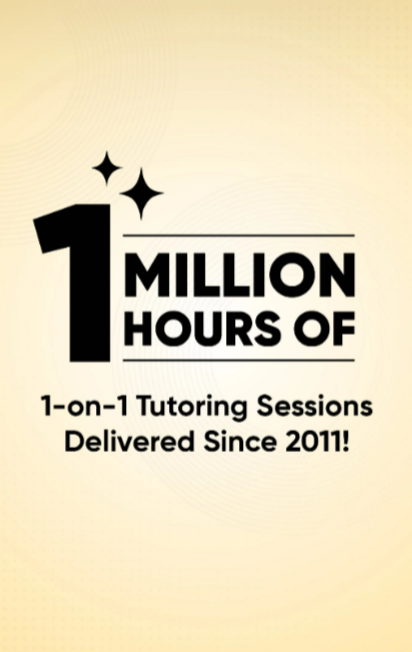Making Math Less Scary: How to Help Your Child Actually Enjoy the Subject
If you're like most parents, you’ve probably heard your child say something like, “I hate math!” or “I’m just not a math person.” It can be frustrating and heartbreaking—especially when you know how important math is for your child’s future.

Math anxiety is real, and it affects thousands of students across the U.S. every year. According to a 2023 study published by Education Week, over 60% of middle and high school students reported feeling stressed when faced with math problems. But the good news? This fear isn't permanent. With the right mindset, strategies, and support, math can transform from a dreaded chore into an engaging, even enjoyable subject.
This article will explore how both parents and students can change their relationship with math—and even grow to love it. Whether your child is in elementary school or gearing up for high school algebra, these insights can help set them on a path toward math confidence and success.
Why Students Dislike Math in the First Place
- It feels abstract: Math often lacks a visible connection to real-life situations, making it seem detached and abstract.
- Fear of being wrong: The pressure to get it “exactly right” can make students afraid to even try.
- Negative experiences: A bad test, a strict teacher, or repeated failures can lead students to believe they are not good at math.
- Poor foundational skills: Falling behind in basic arithmetic can lead to struggles in more advanced topics like fractions, algebra, or geometry.
- Cultural mindset: The belief that “math is only for a chosen few” is common and can discourage students from trying.
What Happens When Kids Start Enjoying Math?
When students shift their perception of math from “impossible” to “interesting,” several positive changes happen:
- Improved grades and test scores
- Better problem-solving skills across subjects
- Increased confidence and academic independence
- Interest in STEM fields (science, technology, engineering, math)
- A growth mindset that encourages resilience
Top Strategies to Make Math Enjoyable and Engaging
1. Normalize Mistakes and Celebrate Effort
Shift the focus from getting the “right answer” to the process of learning. Encourage your child to view mistakes as part of learning, not as failures. Try saying, “Great! That shows us what we can work on next.” This growth mindset helps students feel safe exploring challenging problems.
2. Show How Math Is Used in Real Life
Point out how math appears in everyday life:
- Baking (fractions and measurements)
- Grocery shopping (unit prices and budgeting)
- Travel (time zones, distance, fuel)
- Sports statistics
- Home renovation (area, perimeter, and angles)
Connecting math to daily activities helps make it feel practical and purposeful.
3. Choose the Right Math Tutor or Online Program
If your child is struggling, a personal math tutor can help. The best tutors tailor lessons to your child’s pace and learning style. Many parents are turning to online math tutoring platforms that offer live sessions, progress tracking, and interactive learning experiences, providing flexible and effective support for busy families.
4. Turn Math into a Game
Gamifying math can boost engagement. You can incorporate math into family game nights using games like:
- Monopoly (money management)
- Yahtzee (probability)
- Sudoku (logic and patterns)
- Card games like 24 or Blackjack (mental math)
When kids play with numbers, they become less intimidating.
5. Break Big Problems Into Bite-Sized Steps
Teach your child to break down complex problems into smaller, manageable steps:
- Read the problem aloud.
- Highlight key numbers.
- Identify what the question is asking.
- Solve one step at a time.
This approach reduces anxiety and helps build confidence in problem-solving.
6. Encourage Visual Learning
Use diagrams, drawings, and color-coded notes to help your child visualize math concepts, such as pie charts for fractions, number lines, and grids for multiplication. Educational videos can also support visual learning when aligned with your child’s curriculum.
7. Talk Positively About Math at Home
Your attitude toward math influences your child’s mindset. Instead of saying, “I was never good at math,” try, “Math was hard for me too, but I learned new ways to understand it.” Speak with curiosity and optimism to help your child develop a positive approach to learning math.
8. Use Storytelling to Explain Math Concepts
For younger learners, storytelling can make math more engaging. For example, instead of asking “4 x 3 = ?,” say, “There are 4 plates of cookies, each with 3 cookies. How many cookies are there in total?” Story problems help children relate to and enjoy math concepts.
How Schools Can Foster a Love for Math
Schools can help by:
- Encouraging discovery over rote memorization
- Incorporating open-ended problem-solving
- Using project-based learning
- Focusing on encouragement rather than competition
- Highlighting diverse role models in math
If your child’s school uses outdated methods, consider supplementing their learning at home or online.
When to Seek Professional Math Help
If your child:
- Dreads math homework regularly
- Scores below average consistently
- Experiences anxiety during math tests
- Has a learning difference like dyscalculia
- Feels stuck despite trying
…it may be time to seek personalized math support through online or in-person tutoring.
Final Thoughts: Math Confidence Starts at Home
Math doesn’t have to be scary. With the right tools, mindset, and support, your child can approach math with curiosity instead of fear. It’s not about instant results but about building your child’s belief that they can do it. Once that belief takes root, everything changes.
Looking for Personalized Math Help Online?
If you want to give your child a confidence boost in math, consider online tutoring options tailored to the U.S. curriculum. At Jaya’s Academy, we offer live, interactive lessons with expert tutors trained to make math engaging for every learner, from elementary through high school.
- Flexible scheduling
- Curriculum-aligned support
- Affordable one-on-one tutoring
- Trial sessions available
Explore our online math tutoring programs here.
 United States
United States United Kingdom
United Kingdom Australia
Australia Canada
Canada Middle East
Middle East Europe
Europe